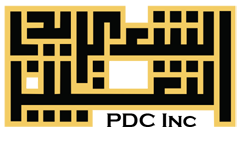Lebanon’s Game of Chicken
U.S. officials in Lebanon currently support Lebanese Speaker of the Parliament Nabih Berri’s proposal for early legislative elections. U.S. support comes from fears of security risks stemming from the stagnation of Lebanon’s institutions, as parliament has failed for two years to elect a president. While members of parliament (MPs) continue to abstain from legislative sessions, denying quorum on a presidential vote, the two steadfast coalitions – March 8th and March 14th – have started to break.
After a deal failed at the end of last year to build momentum behind presidential candidate Suleiman Frangieh – leader of the Marada party and part of Hezbollah’s March 8th coalition – Hezbollah has since backed Free Patriotic Movement leader Michel Aoun, who is also a member of March 8th. With Saad Hariri’s Future Movement (Sunni) leading parties within March 14th in support of Frangieh, and with MPs from both coalitions contributing to the lack of quorum needed to cast the vote, both sides use the other’s absence as evidence of political malfeasance. From the U.S. perspective, ending the deadlock is matter of security. However, for Lebanon’s top politicians, the delay tactics constitute a game of political chicken. The winner gets to decide the future of Lebanon’s power structure.
Russia Set to Pull Out…Maybe Not
Recently, the Russian government announced it will begin pulling out its’ troops from Syria. According to Russian Air Force Commander Viktor Bondarev in an interview conducted with Pravda, the primary contingent of Russian military forces will leave Syria in the next 2 days, which places...
PDC Update: Internal Report, The Current Military Map of Deir ez-Zour
This is a PDC insider update on the positions of opposition armed groups in Deir ez-Zour. [pdfjs-viewer url= https://www.peopledemandchange.com/wp-content/uploads/2015/12/The-military-map-of-Deir-ez-Zour_1.pdf fullscreen=true download=false print=false openfile=false viewer_height=780 ] ...
“One Syrian Passport” by Daryl Grisgraber and Sasha Ghosh-Siminoff
This blog was co-authored by Sasha Ghosh-Siminoff, the Executive Director of People Demand Change, an international development organization that works to expand and strengthen civil society in the Middle East and North Africa (MENA) through the provision of aid and support. Last week’s events in Paris...
Twin Blasts rock southern Beirut
Twin suicide blasts ripped through Beirut last night in Hezbollah controlled Dahiyeh just north of Rafiq Hariri International Airport. Lebanese investigators are examining the attack which left 43 dead and roughly 239 wounded. The attacks were purportedly done as a response to Hezbollah’s involvement in...





